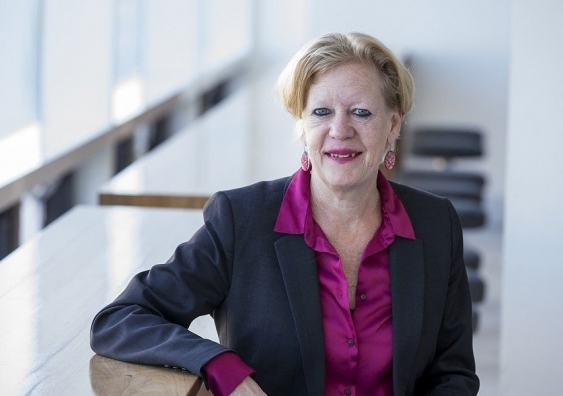How to show enthusiasm in a job interview
Keen as a bean to nail that job interview? It turns out that showing too much enthusiasm for the new job can damage your chances, new UNSW Business School research shows.
Keen as a bean to nail that job interview? It turns out that showing too much enthusiasm for the new job can damage your chances, new UNSW Business School research shows.

Job search fatigue is real. It can appear as a blend of physical and emotional exhaustion following weeks, if not months, of applying and not landing a job interview.
Once you’ve successfully trawled the job descriptions on LinkedIn (a recruiter’s social media platform of choice), job sites such as Seek, or good old-fashioned networking, you’re probably keen to cinch the deal with an interview where you show 110 per cent enthusiasm for the company.
But it turns out here is where it is easy to trip up. While many employers say they look for genuine enthusiasm from job seekers (with one study showing four out of ten respondents said they reject job candidates who show no enthusiasm in an interview), being an over-eager beaver can also get you rejected.
An interviewee should instead get the advantage over another job candidate by showing genuine enthusiasm, but not too much – and end up coming off as fake.
The findings of a new study, co-authored by UNSW Business School’s Professor Karin Sanders, a researcher in the School of Management and Governance, expressing ‘intense’ instead of ‘mild’ enthusiasm during an interview reduce applicants’ chances of being perceived as a suitable fit for the job.
The interview process can be harrowing. But hiring managers and recruiters will appreciate someone with a positive attitude who can also control their emotions instead of acting over-the-top.
But many job candidates might not be aware of the sheer importance of showing enthusiasm for the role they’re applying to or may struggle to show this naturally if they are introverts.
But can you be too enthusiastic in an interview? If prospective employers perceive your enthusiasm as not under control anymore, they might judge it as unprofessional.
“Our research shows that there are differences in the intensity of enthusiasm and that too intense is less appreciated, but showing enthusiasm is helpful,” says Prof. Sanders.
In the study, Does emotional restraint or exuberance get you the job? How and when enthusiasm intensity is related to perceived job suitability, Prof. Sanders and co-authors analyse responses from almost 600 recruiters in China on how they rate job candidates on enthusiasm.
While the study is based on evidence from China, Prof. Sanders says the results align with findings on emotional intensity in countries like the US and Netherlands.
Prof. Sanders explains: “Previous research fails to consider the consequences of the magnitude of enthusiasm in job interviews (also known as first expression effects).
“Such enthusiasm influences interviewers’ cognitive encoding processes that subsequently determine the interviewer’s perceptions of the applicant’s job suitability.”

The ability to adequately express enthusiasm in a stressful situation like a job interview often requires a degree of emotional control, says UNSW Business School's Karin Sanders. Photo: Supplied
So, in contrast to mild enthusiasm, employers generally do not appreciate intense enthusiasm. “Higher intensity expressions can be perceived as extreme and unprofessional and do not always lead to favourable outcomes for applicants,” says Prof. Sanders.
But much of this also depends on the context and the specific job the applicant is applying for.
Nevertheless, the results show that intense enthusiasm does not always decrease job suitability and can lead to a positive interview outcome in some circumstances (depending on the interviewer’s characteristics).
“We find that the interviewer’s perceptions of decreased appropriateness explain the negative consequences of intense enthusiasm. In contrast, the positive consequences are driven by the interviewer’s perceptions of the applicant’s attraction to the organisation,” explains Prof. Sanders.
See more: Quiet quitting: The burnout phenomenon hitting business
So by showing mild enthusiasm, an interviewee signals they are motivated for the job and in control of their emotions. On the other hand, applicants may show that they cannot stay in control in stressful or difficult situations by showing intense or over-the-top enthusiasm.
These findings highlight the importance of nonverbal communication. “If nonverbal communication was not important, employers could choose by only screening the resume or cover letter of job candidates,” says Prof. Sanders.
This suggests that the main reason to interview in the first place is to assess a candidate’s suitability based on their nonverbal communication skills.
“Nonverbal communication is important in interviews and many conversations. This is why we have moved from phone calls to Teams and Zoom meetings, although we are still missing many non-verbal communications compared to in-person communication,” she says.
For any interview preparation, we are often told that first impressions matter. But sometimes, first impressions boil down to our body language.
Enthusiasm is critical to answering interview questions, asking great questions at the end of the interview, and even in any follow-ups, such as a thank you note. And it can mean the difference between not getting a job and advancing your career.
Aside from dressing appropriately, how can you communicate nonverbally to enthusiasm?
“Eye contact for a few seconds (but not too long). Have a smile on your face, nod when the panel is talking (to show you understand them and you listen),” says Prof. Sanders.
“Laughing also shows that you are relaxed, but do not laugh too much; it signals that you are nervous. Wait for the panel members to laugh first. Have an open attitude, a good handshake, and look at the other person,” she says.
See more: Harnessing the power of diversity in practice through online meetings
What body language should you avoid?
“Poor posture by leaning back (this shows a lack of enthusiasm) and crossing your arms can come across as either not interested in the discussion or overly confident or arrogant,” explains Prof. Sanders.
“I have seen many of these examples in interviews. It kills your motivation to hire such an applicant.”
What about if it’s a phone interview? What are some other things job candidates can do to appear in control and excel in an interview?
“Know the business. Google as much as possible on the organisation, such as annual reports, know the panel members (spend an afternoon or so to know more about your potential employers), and be sure that the role is a good match for you,” explains Prof. Sanders.
For hiring managers to assess or measure a candidate’s ‘appropriateness’ often comes down to a combination of ’a good feeling’ and ‘ticking the boxes on many aspects’.
This is where HR research plays an essential role in helping employers hire suitable job candidates. And interviewees can practice showing control to increase the chances of landing their next job offer.